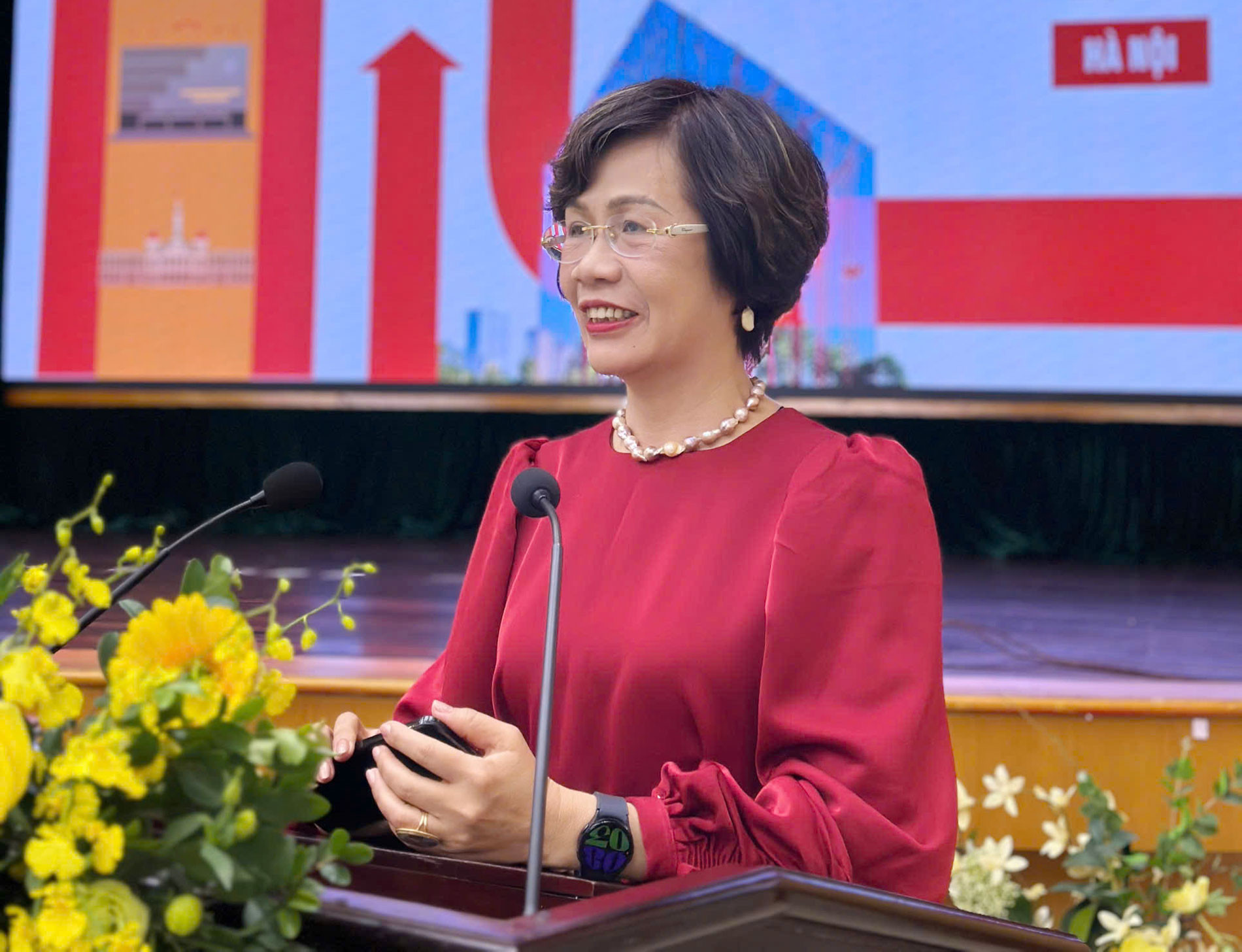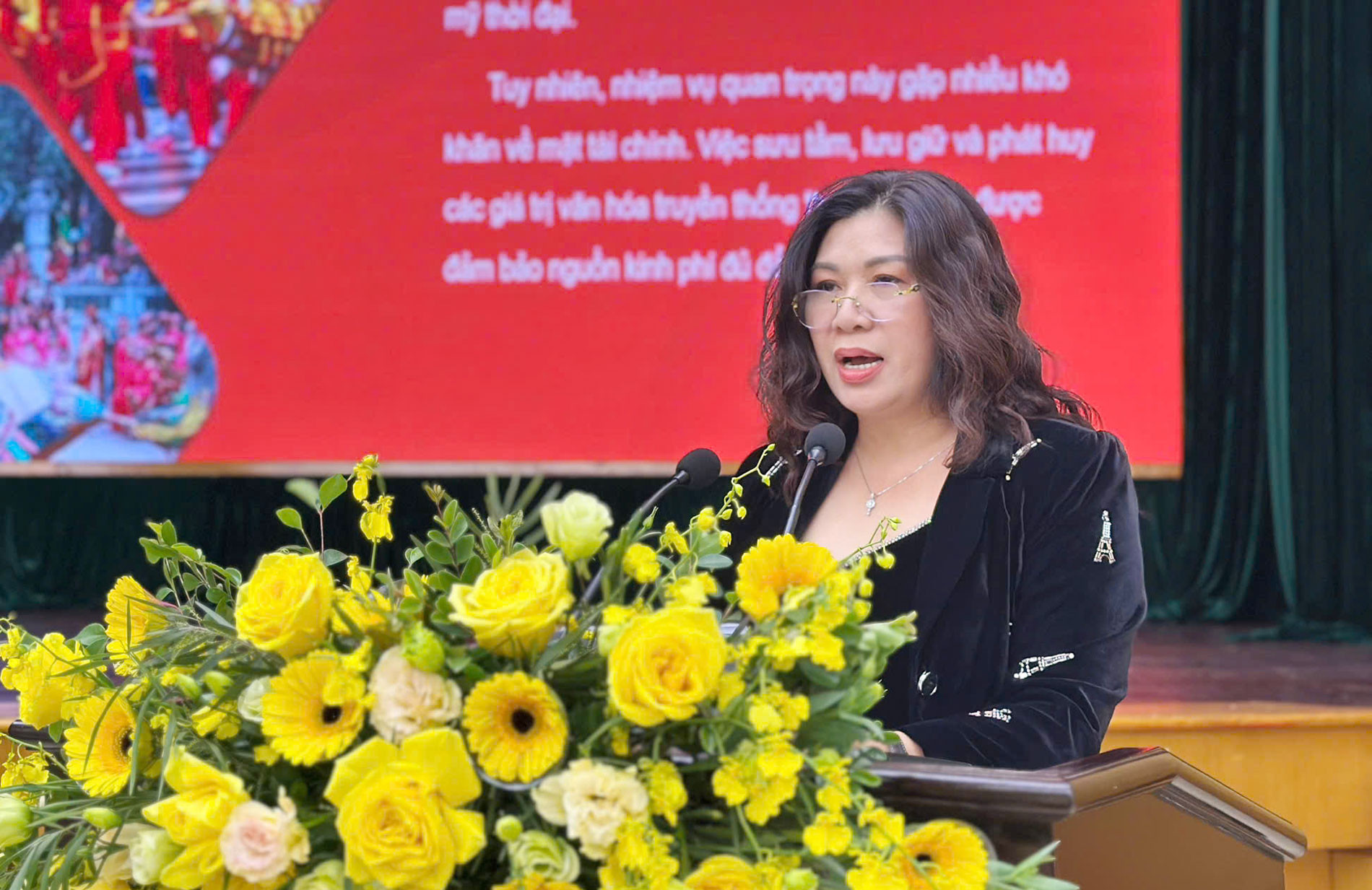The reality TV programs Anh Trai Say Hi (Call Me By Fire Vietnam) and Anh Trai Vuot Ngan Chong Gai (Say Hi Never Say Goodbye) have brought a new vibrancy to Vietnam's performing arts sector, a key area within the country’s cultural industries.
Looking back at the cultural sector in 2024, the Ministry of Culture, Sports, and Tourism (MOCST) noted that these two music-focused reality shows stood out as significant contributions to Vietnam's performing arts - a cornerstone of its cultural industries.

During the scientific seminar "Investment and Sponsorship for Culture: International Experience and Lessons for Vietnam," organized by the Vietnam National Institute of Culture and Arts Studies (under MOCST) in collaboration with the People's Committee of Hoan Kiem District on December 9, experts emphasized the need for immediate investment and support for cultural development.
As Dr. Nguyen The Hung, Head of the Department of Science, Technology, and Environment under MOCST, remarked:
“Cultural and artistic activities are becoming increasingly diverse and high-quality. However, implementing investment and sponsorship projects in culture faces challenges due to a lack of clear legal frameworks. The coordination between state agencies and enterprises remains inconsistent, resulting in inefficient resource utilization.”
Dr. Hung underscored that the development of culture requires the involvement of various resources, with investment and sponsorship being responsibilities shared by the government, organizations, businesses, and individuals alike.

Associate Professor Dr. Nguyen Thi Thu Phuong, Director of the Vietnam National Institute of Culture and Arts Studies, stressed the importance of cultural investment for sustainable development: “To ensure culture stands as one of the four pillars of national development alongside economics, politics, and society, it is crucial to mobilize resources, attract investments, and secure sponsorship for cultural projects."
Dr. Phuong highlighted that such efforts not only preserve cultural heritage but also promote innovation and elevate Vietnam’s cultural standing on the global stage. She cited examples of successful cultural funding models in other countries, which have created sustainable value for their communities.
Despite this, she acknowledged the existing barriers in Vietnam, such as restrictive policies and limited theoretical or practical research on cultural investment.

People’s Artist Cao Ngoc Anh, Deputy Director of the Youth Theatre, pointed out the disparities in Vietnam's performing arts sector, including issues with institutional frameworks, infrastructure, and personnel.
Using musical theater as an example, she noted: “In countries like England, the U.S., Japan, and South Korea, musical theater has thrived for decades, becoming a highly profitable industry. Performers are rigorously trained across acting, vocal performance, and dance. In Vietnam, however, no specialized schools currently offer comprehensive training for musical theater actors.”
Ms. Ngoc Anh described Vietnam’s musical productions as improving in quantity and quality but still in the exploratory phase. Most actors are trained on an ad-hoc basis through specific productions or international collaborations, while creative teams lack sufficient technical expertise.
She suggested that public-private partnerships in cultural projects could help address these challenges, with media, entertainment, and technology companies playing a critical role in sponsorship and development.
Dr. Jérémy Segay, Audiovisual Attaché for the French Embassy in Vietnam, shared insights into France's film industry, which produces over 700 films annually - averaging two films released per day. He attributed this success to France’s robust support systems, which include public mechanisms, funding foundations, and corporate investment.
Emmanuel Cerise, Director of the Paris Region International Cooperation Agency in Vietnam, also emphasized the need for new cultural spaces and creative networks. He proposed initiatives such as organizing festivals, establishing multi-functional areas, and providing artist accommodations or event spaces to foster creativity.
From a governmental perspective, Do Quang Minh, a representative from the Planning and Finance Department of MOCST, argued that policy-makers should first identify priority objectives based on the country's unique cultural needs.
“Comprehensive cultural policies should harmonize social, political, and economic goals to achieve sustainable development. For Vietnam, expanding economic objectives within cultural policy is both necessary and strategic in the context of integration and economic transformation. This approach allows for more effective investment tools that balance cultural preservation with economic growth,” Minh explained.
Tinh Le